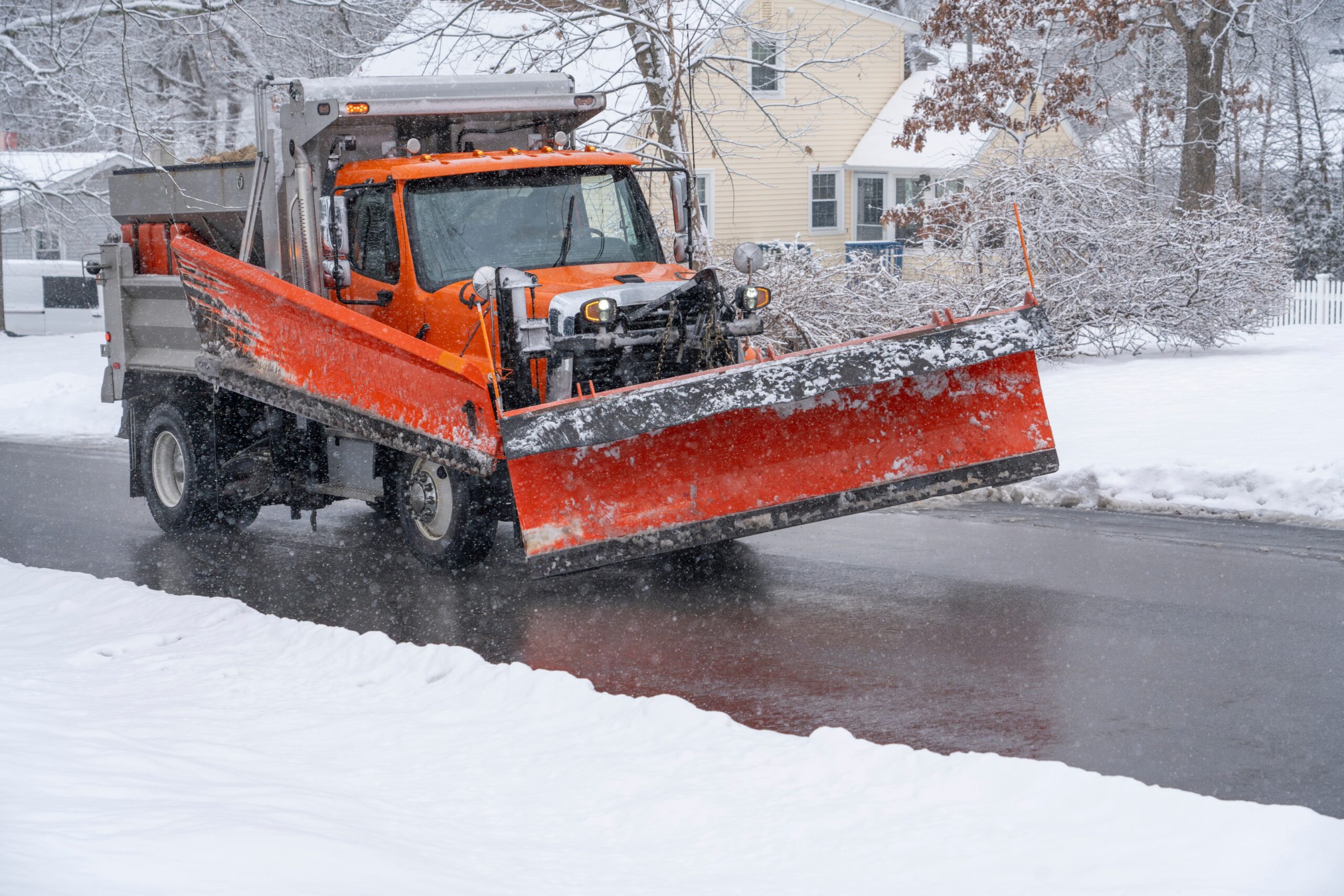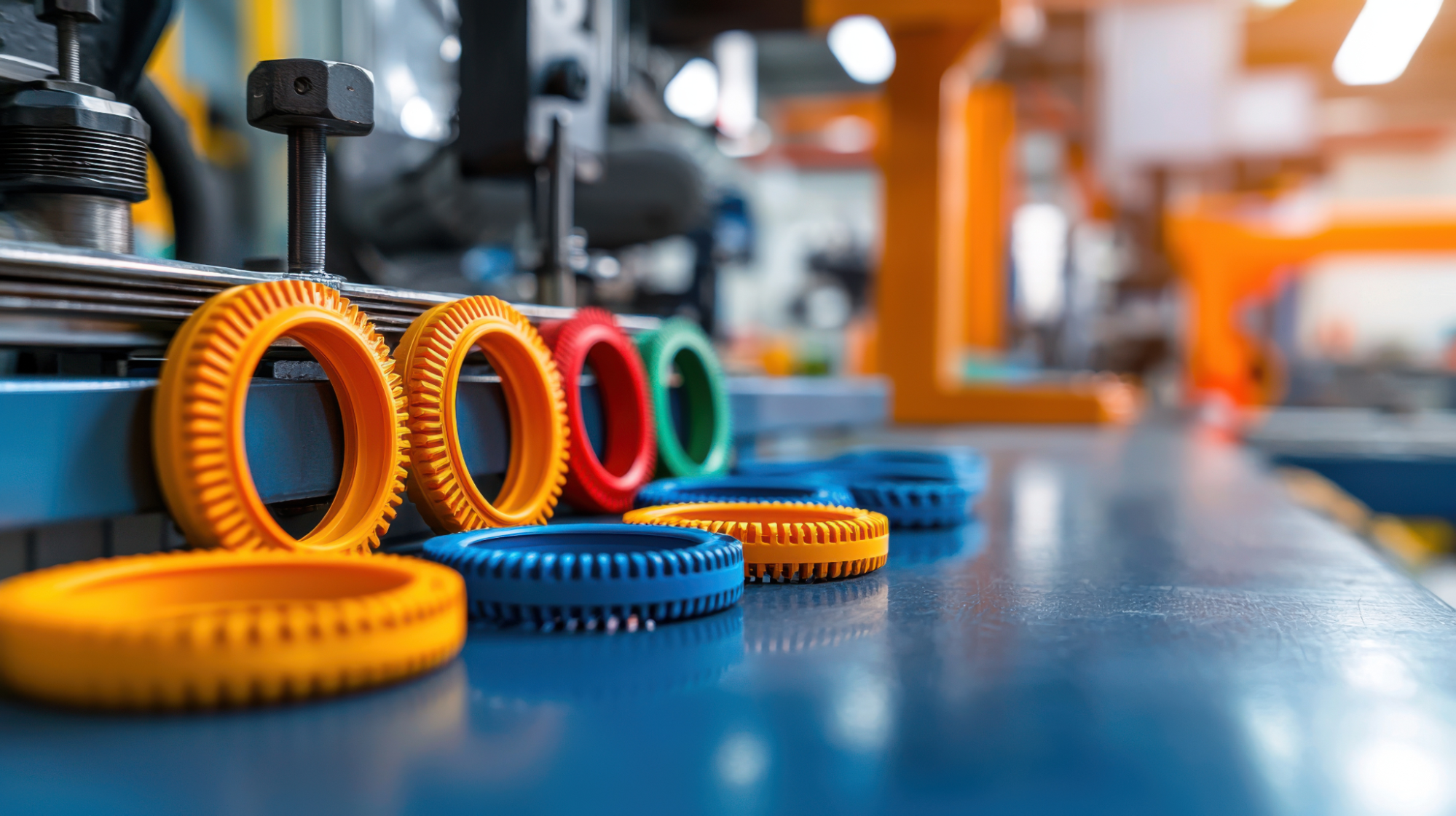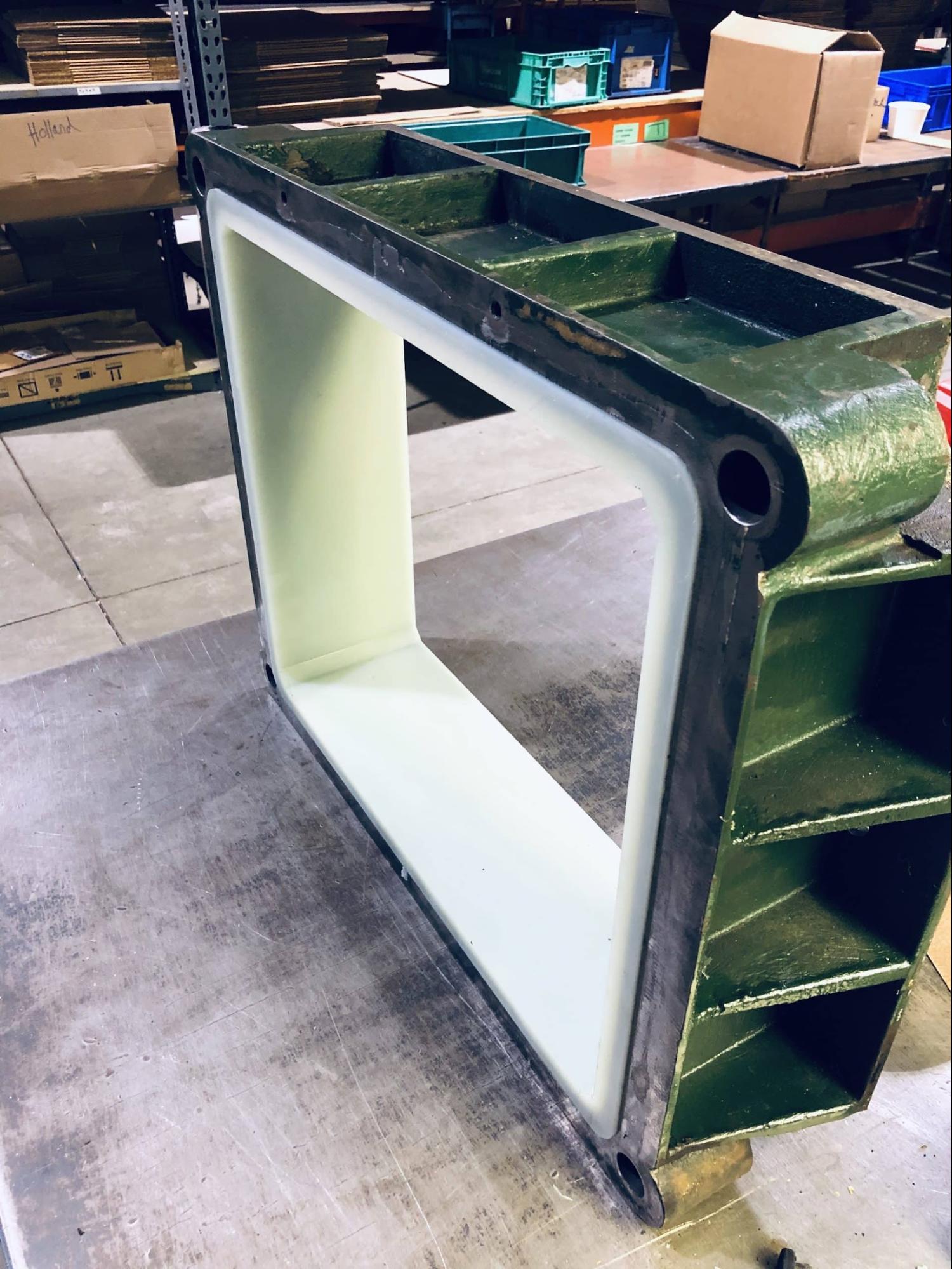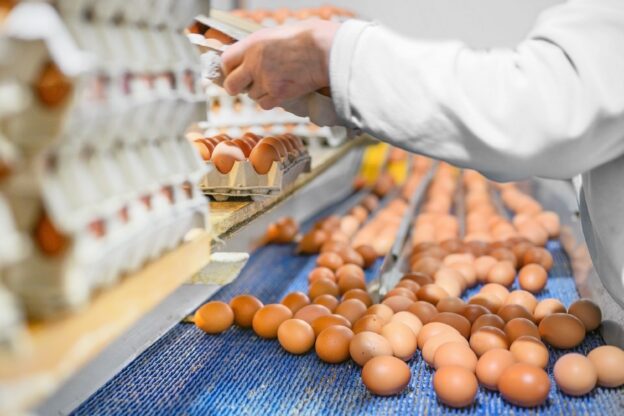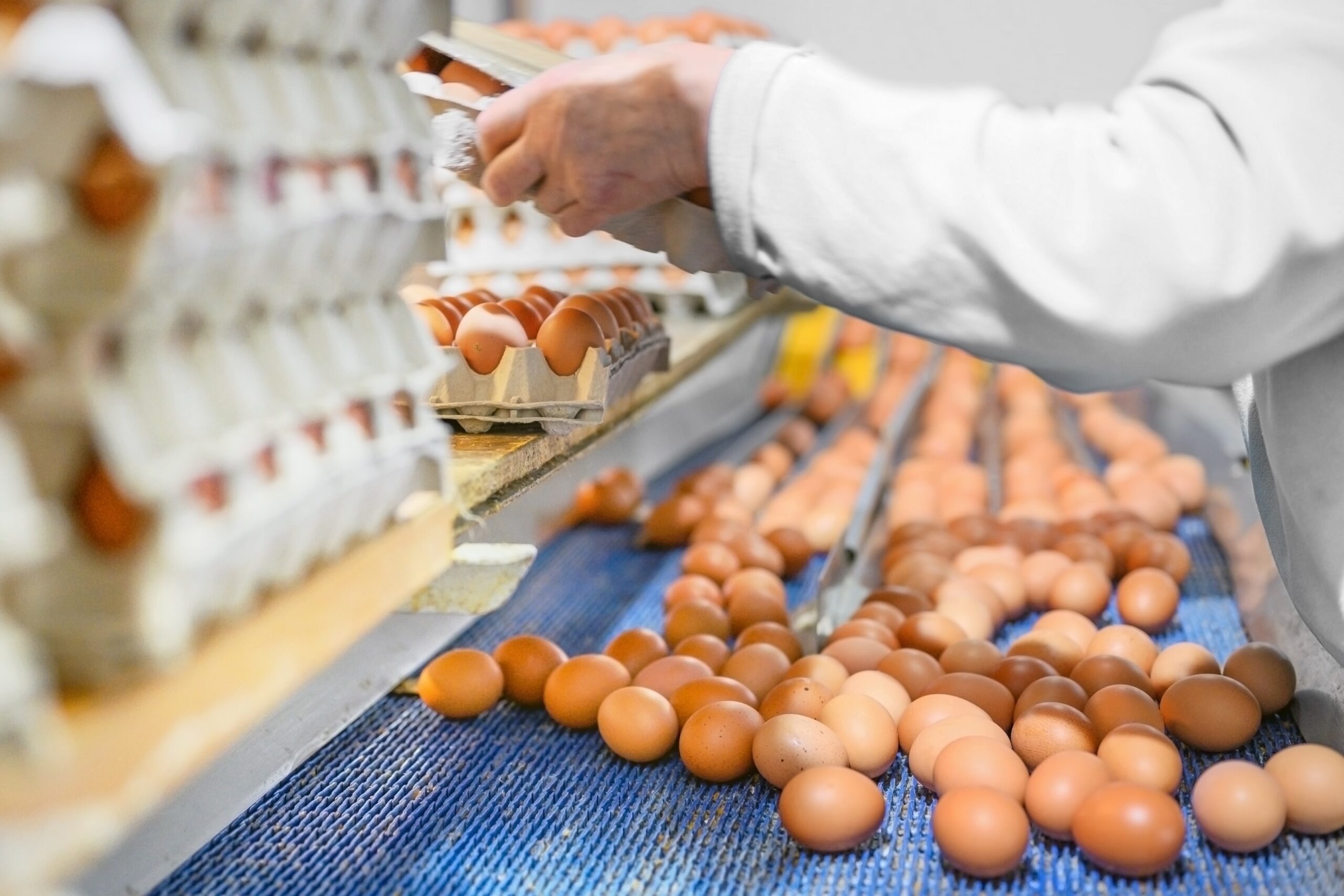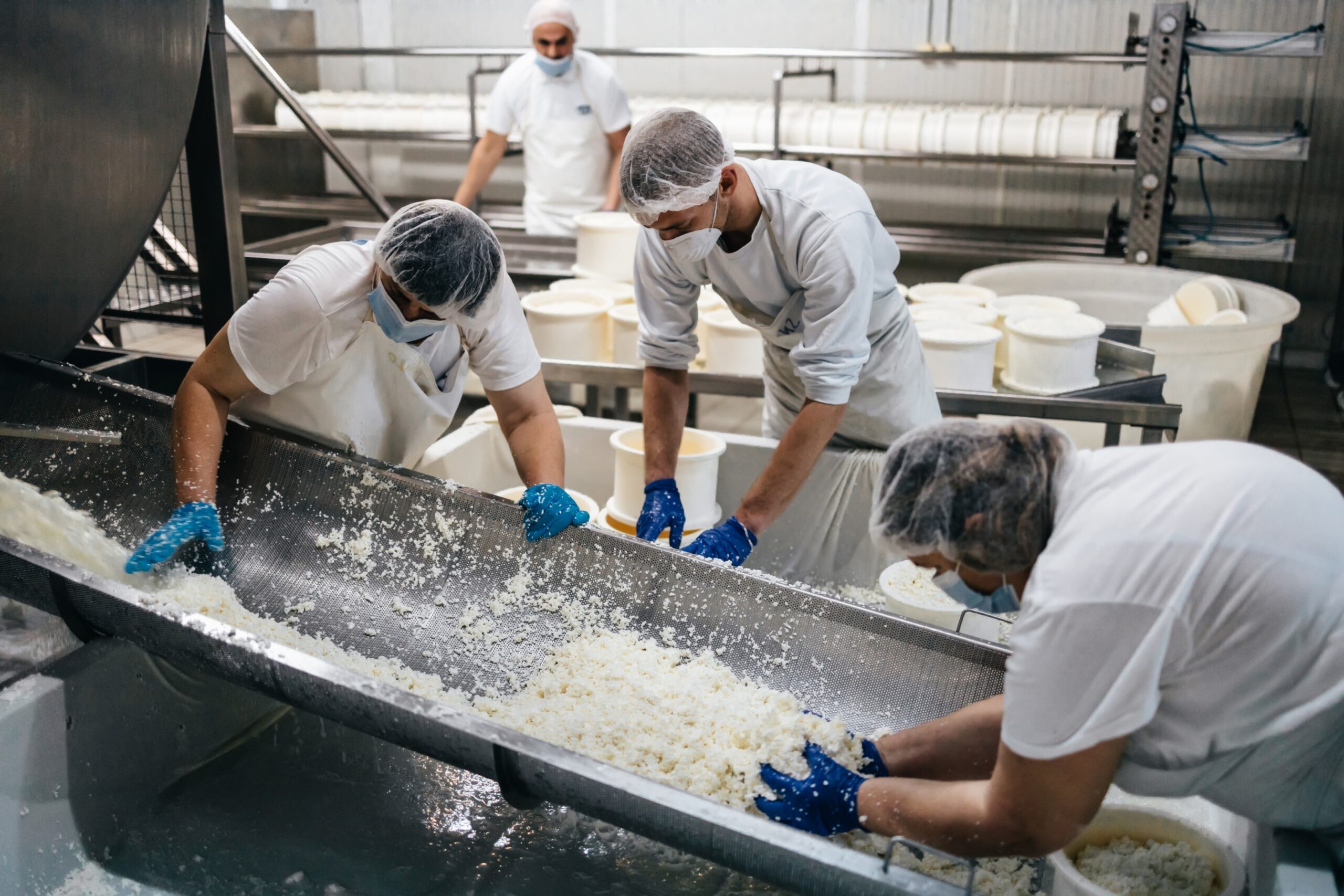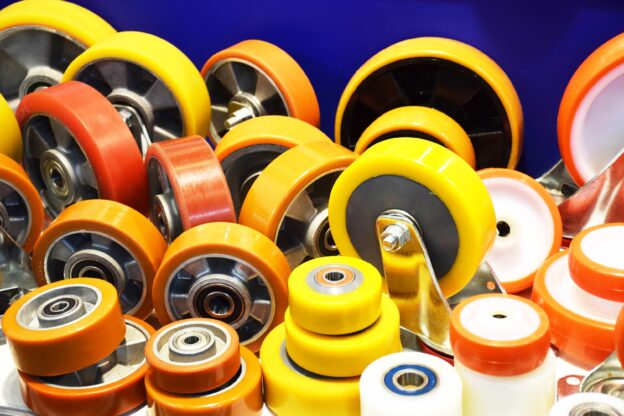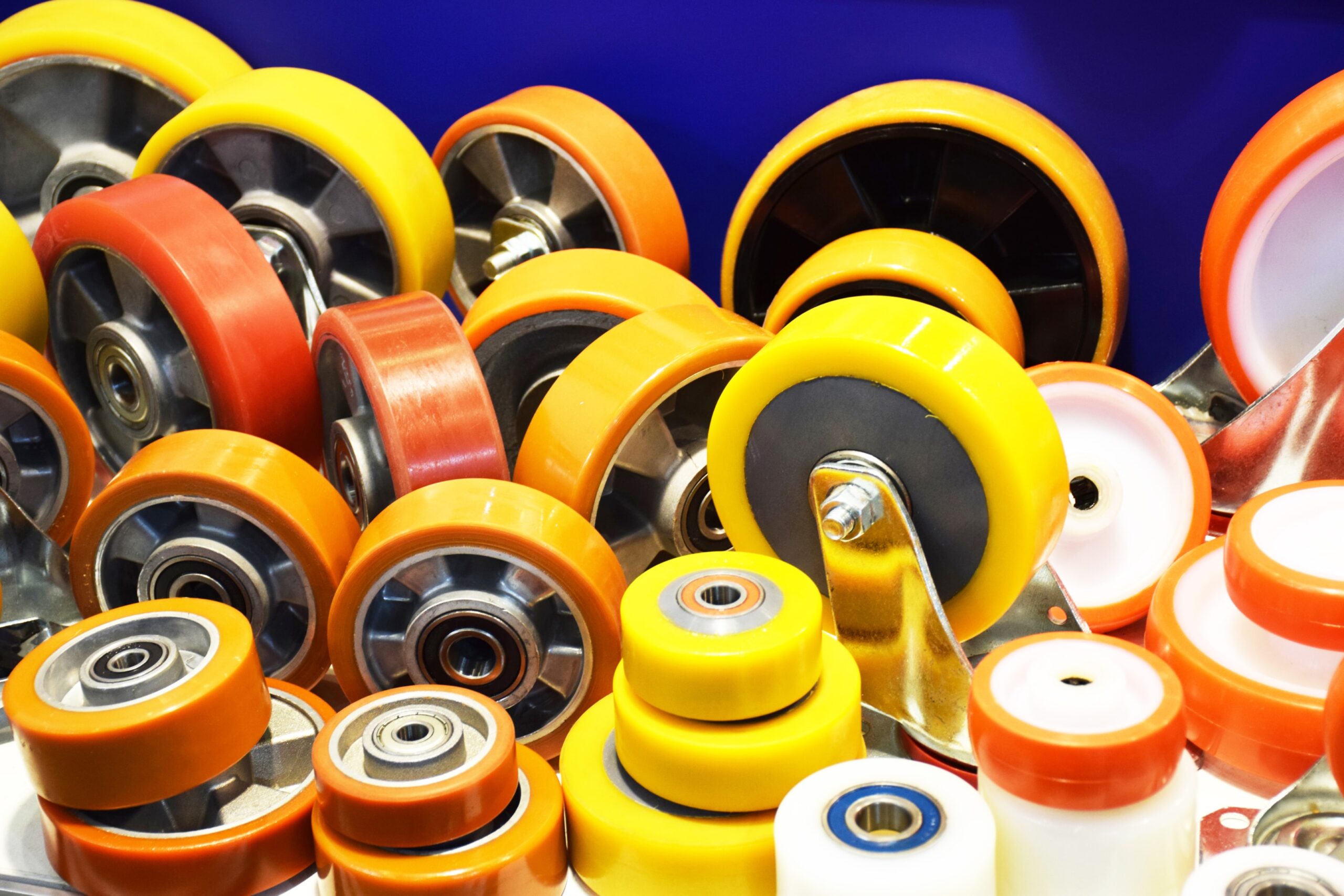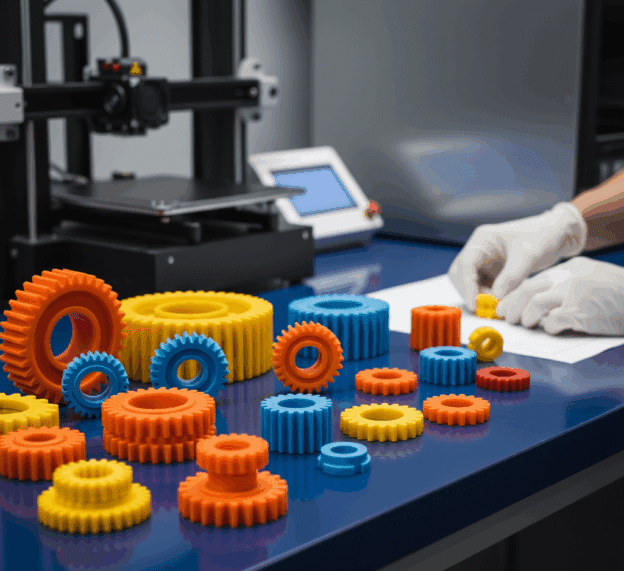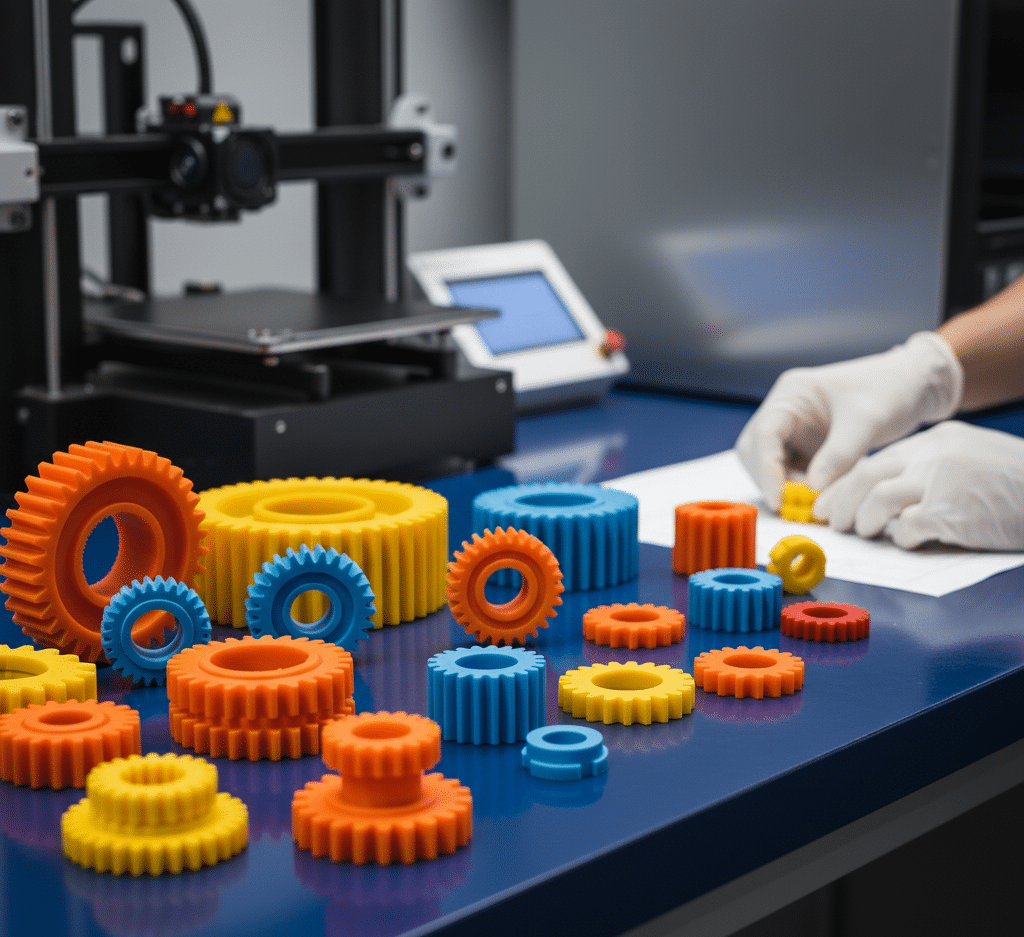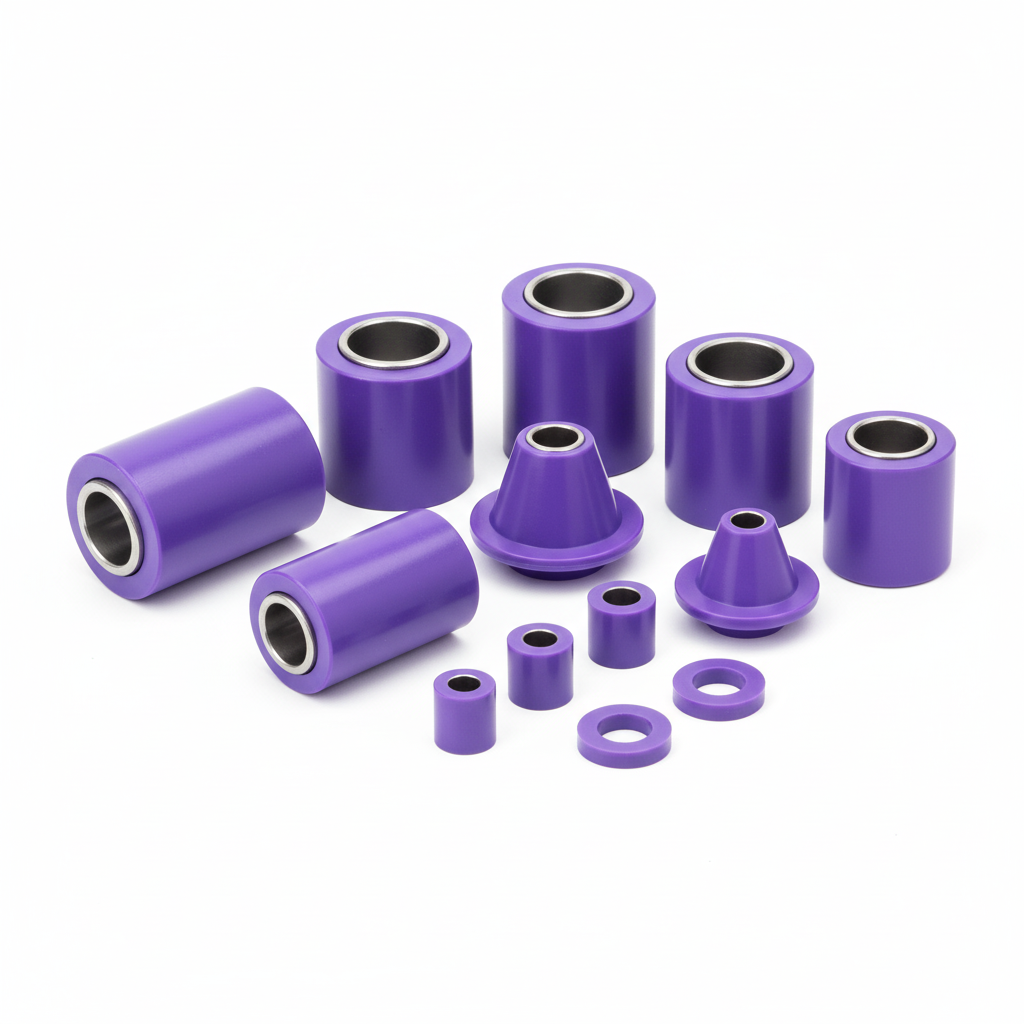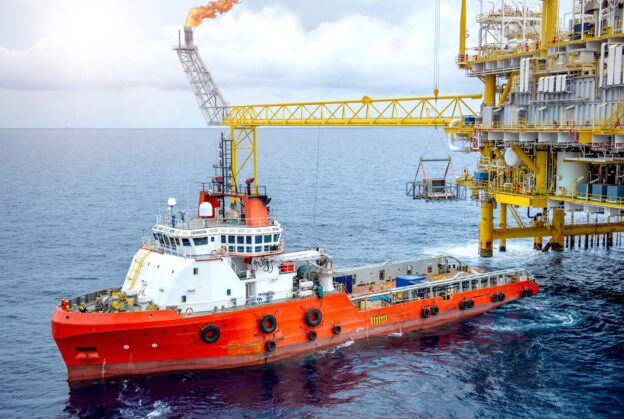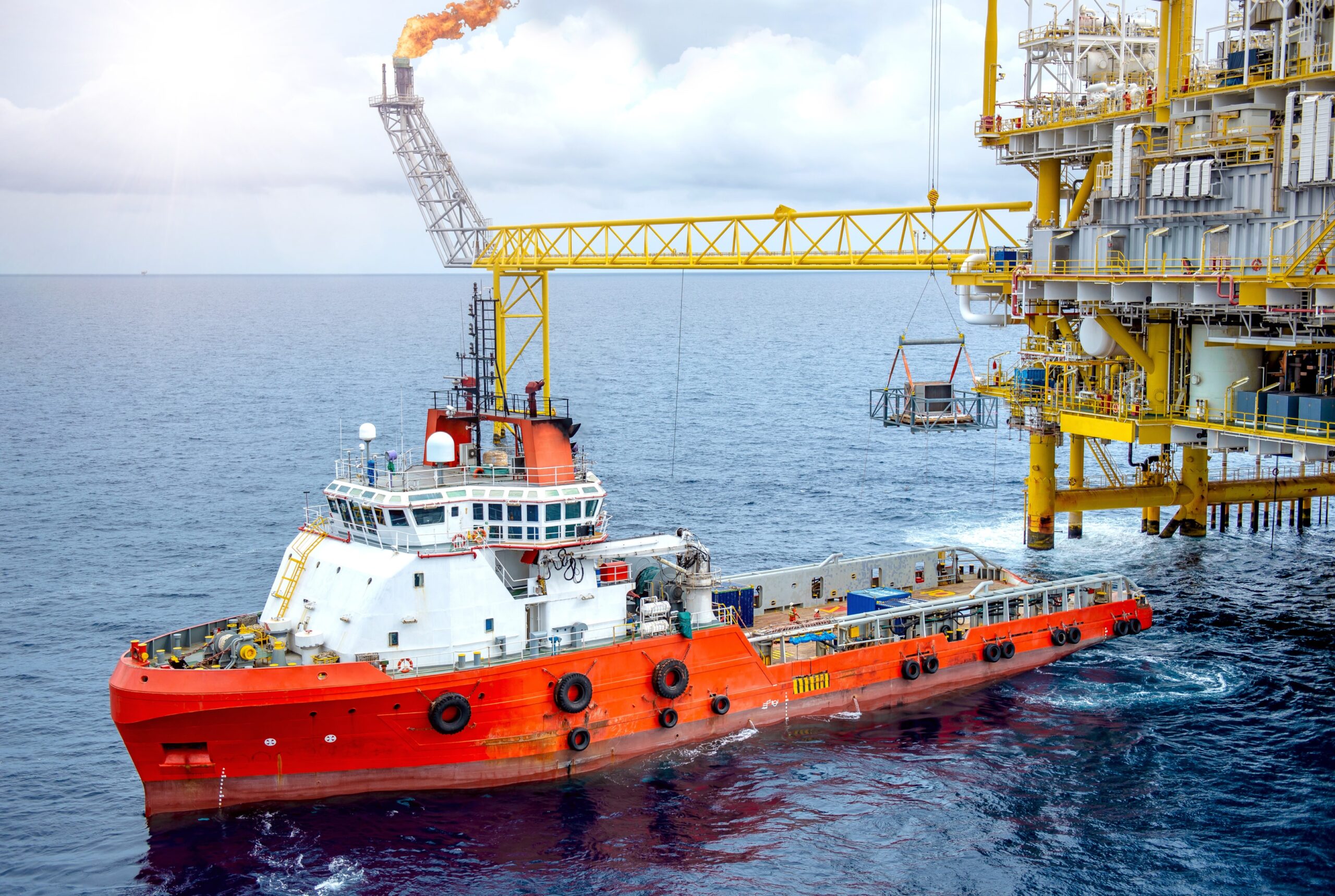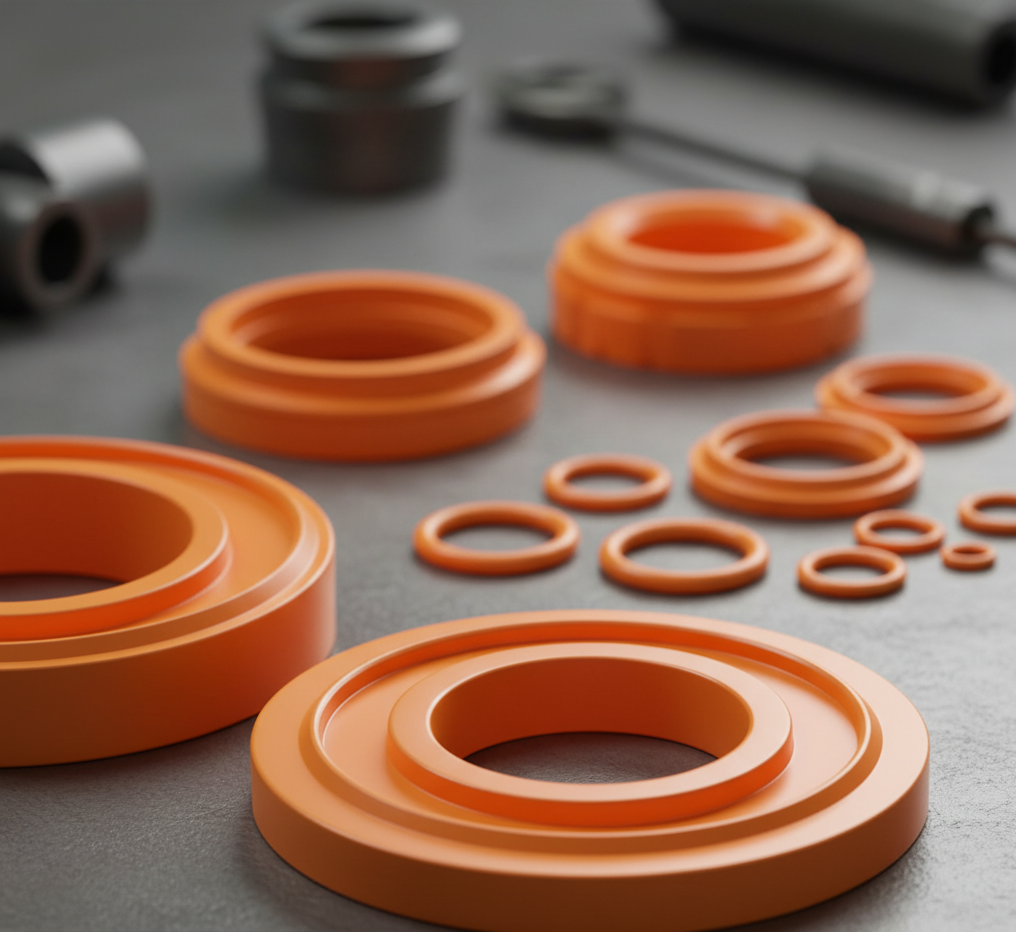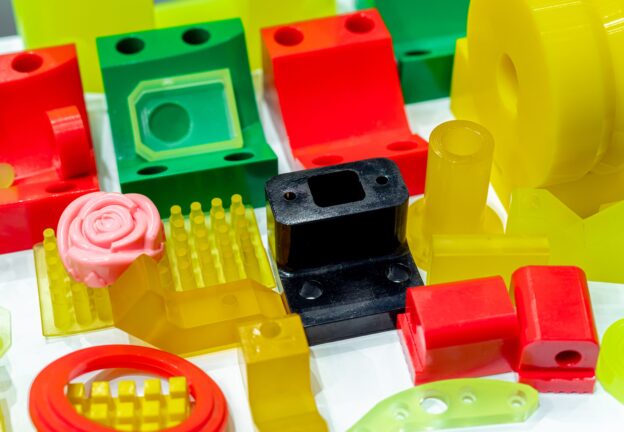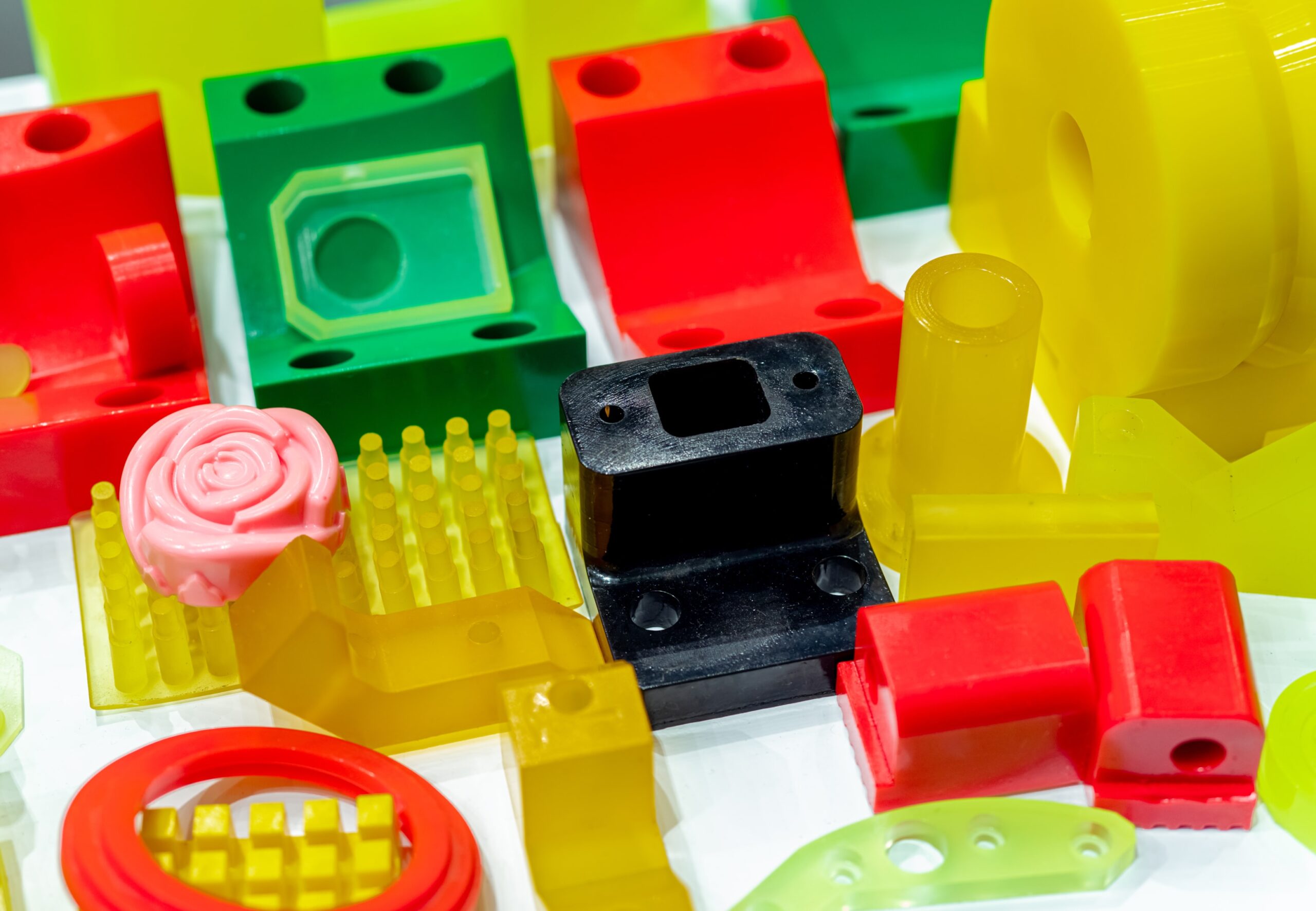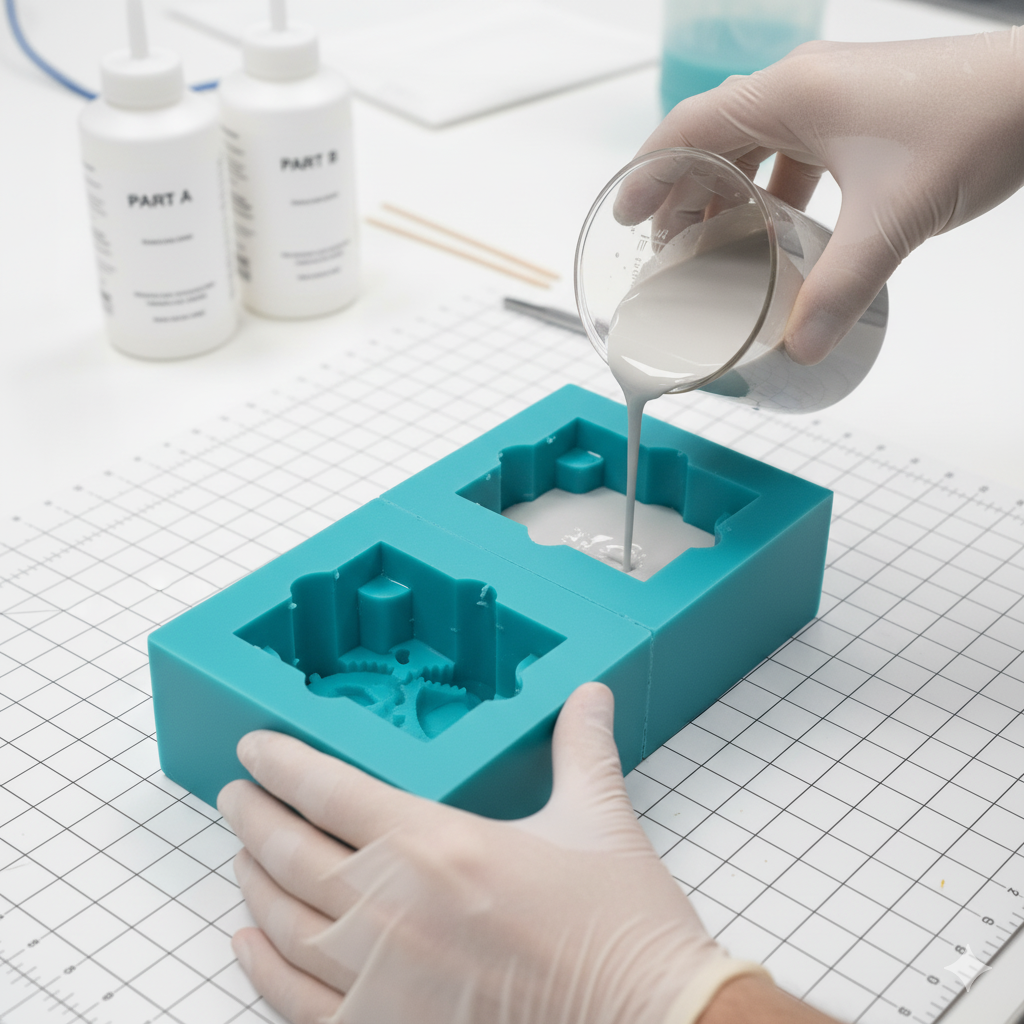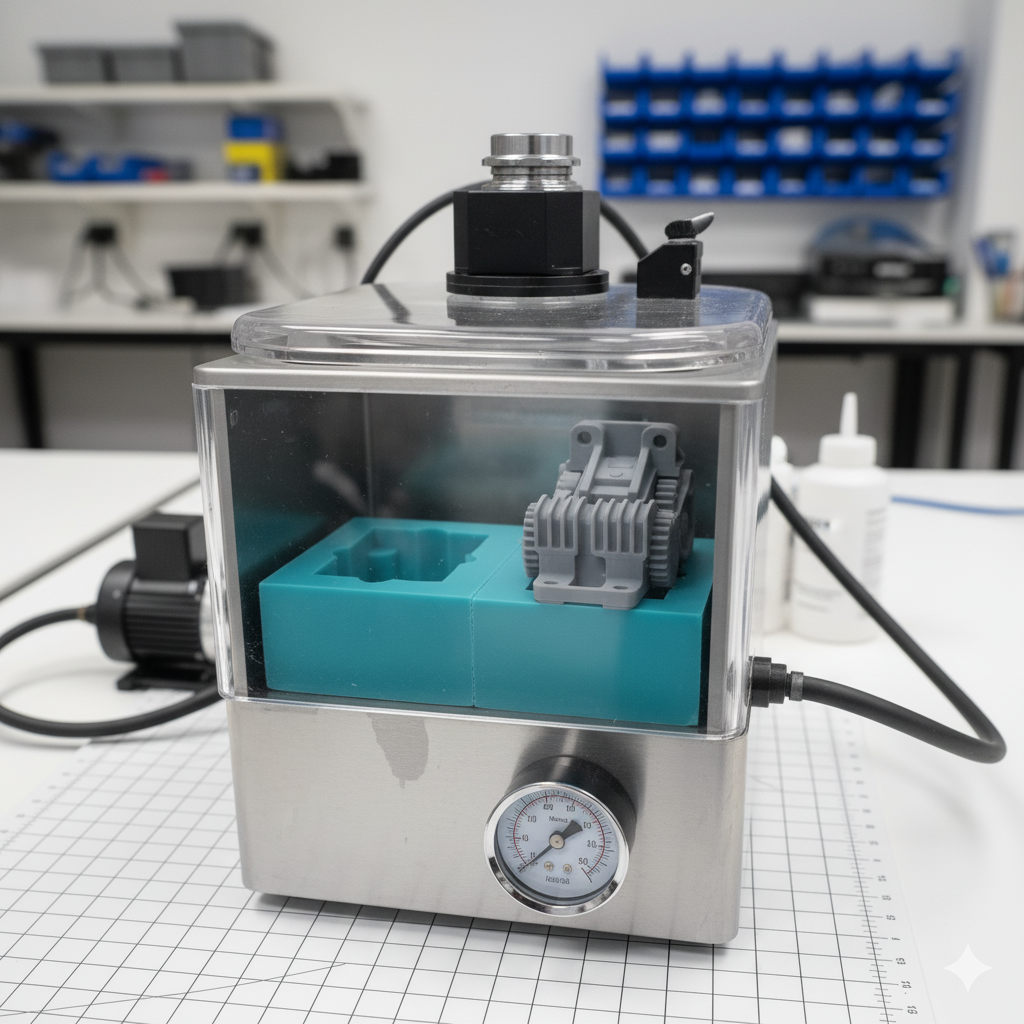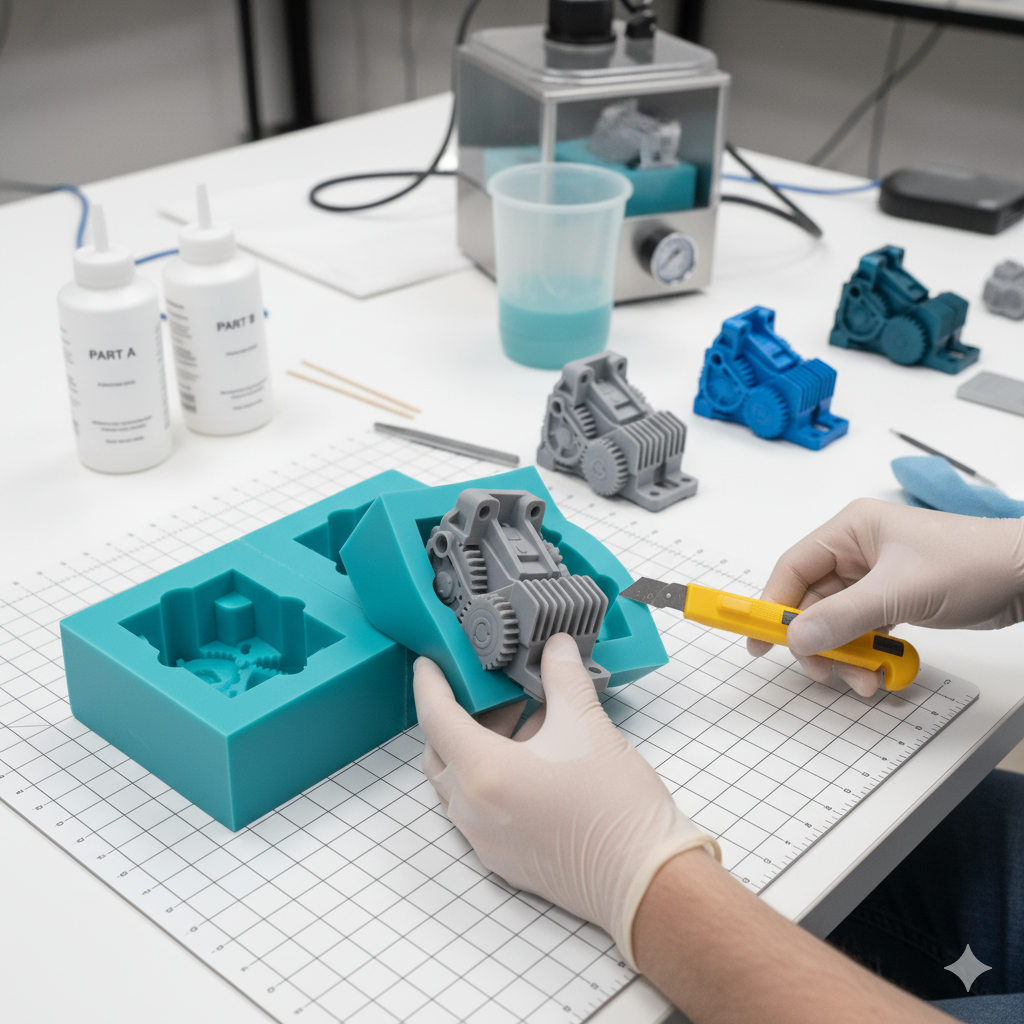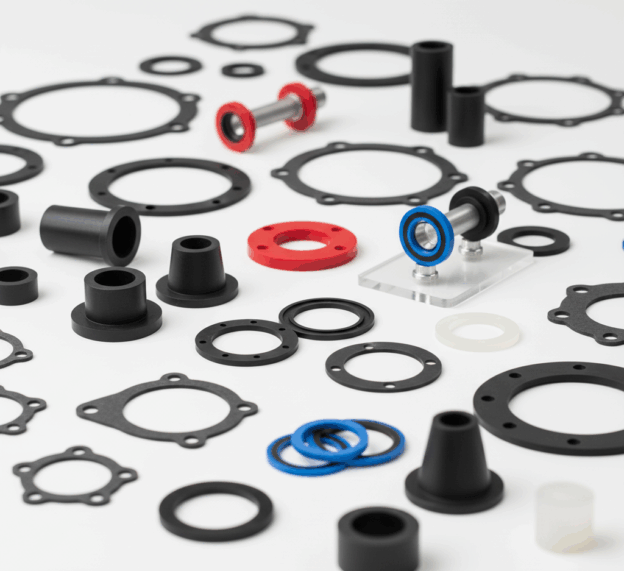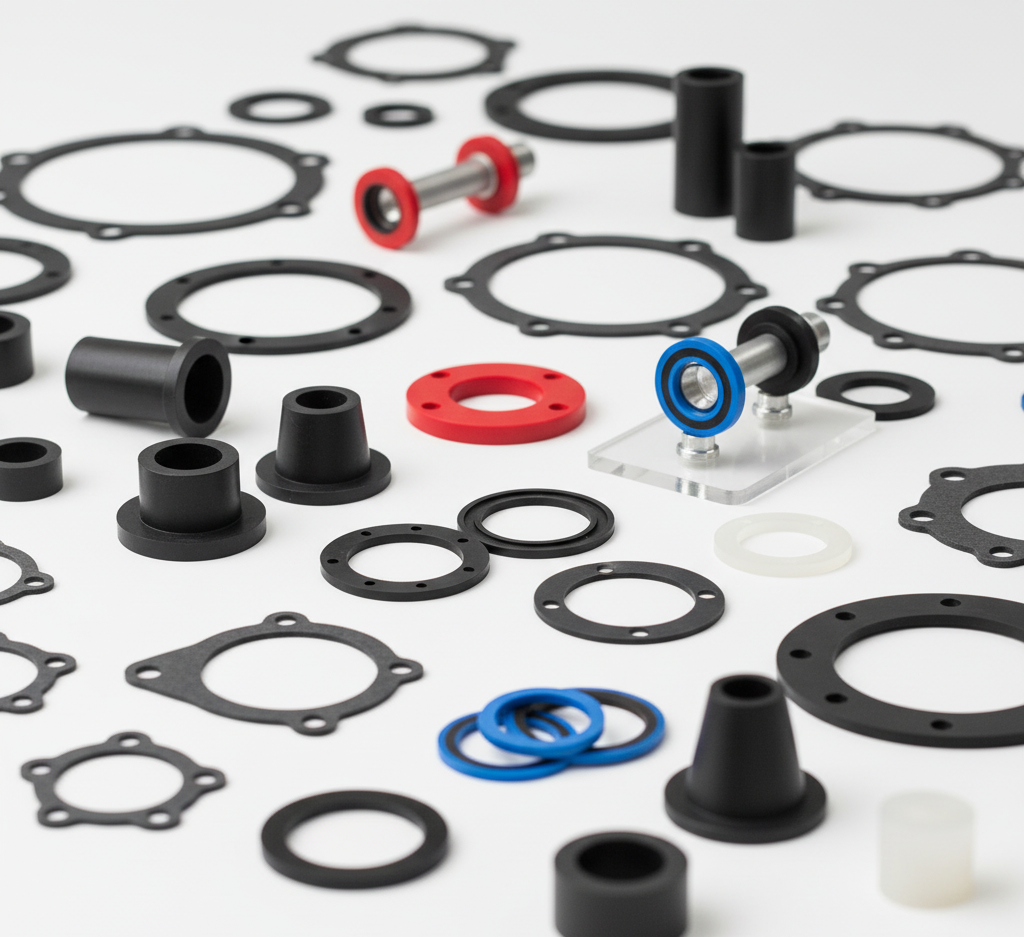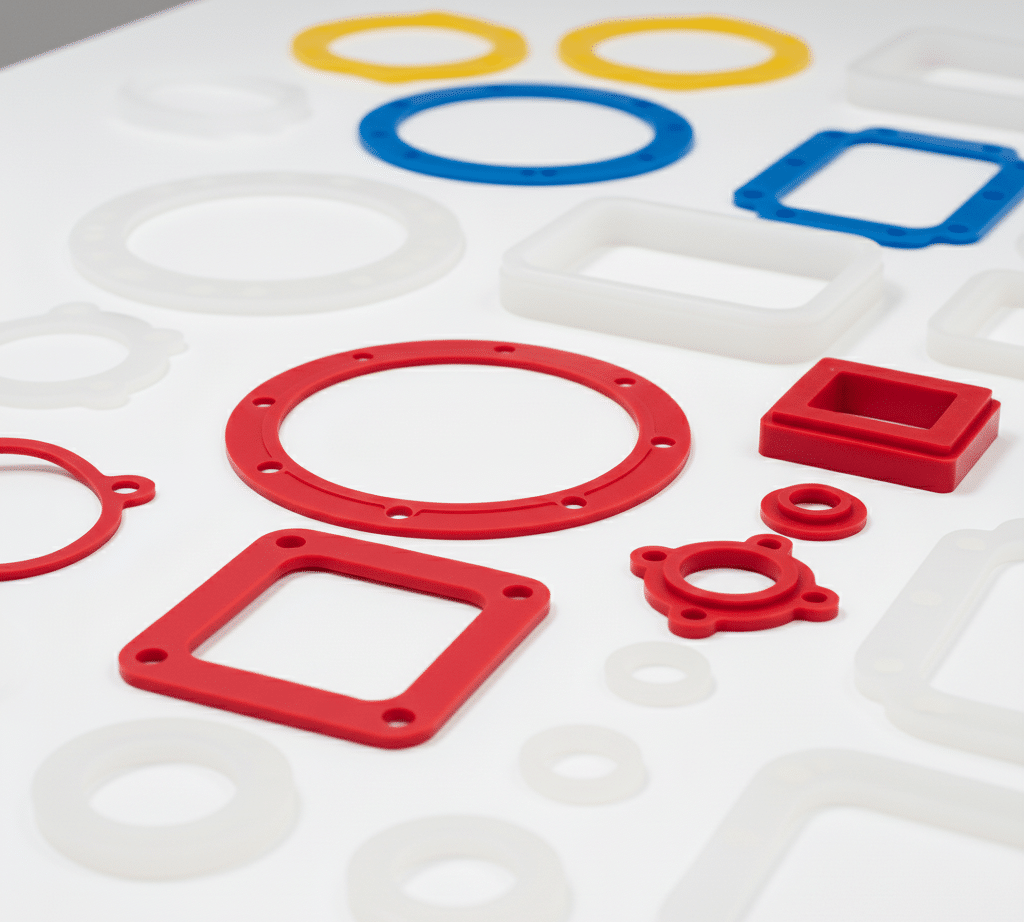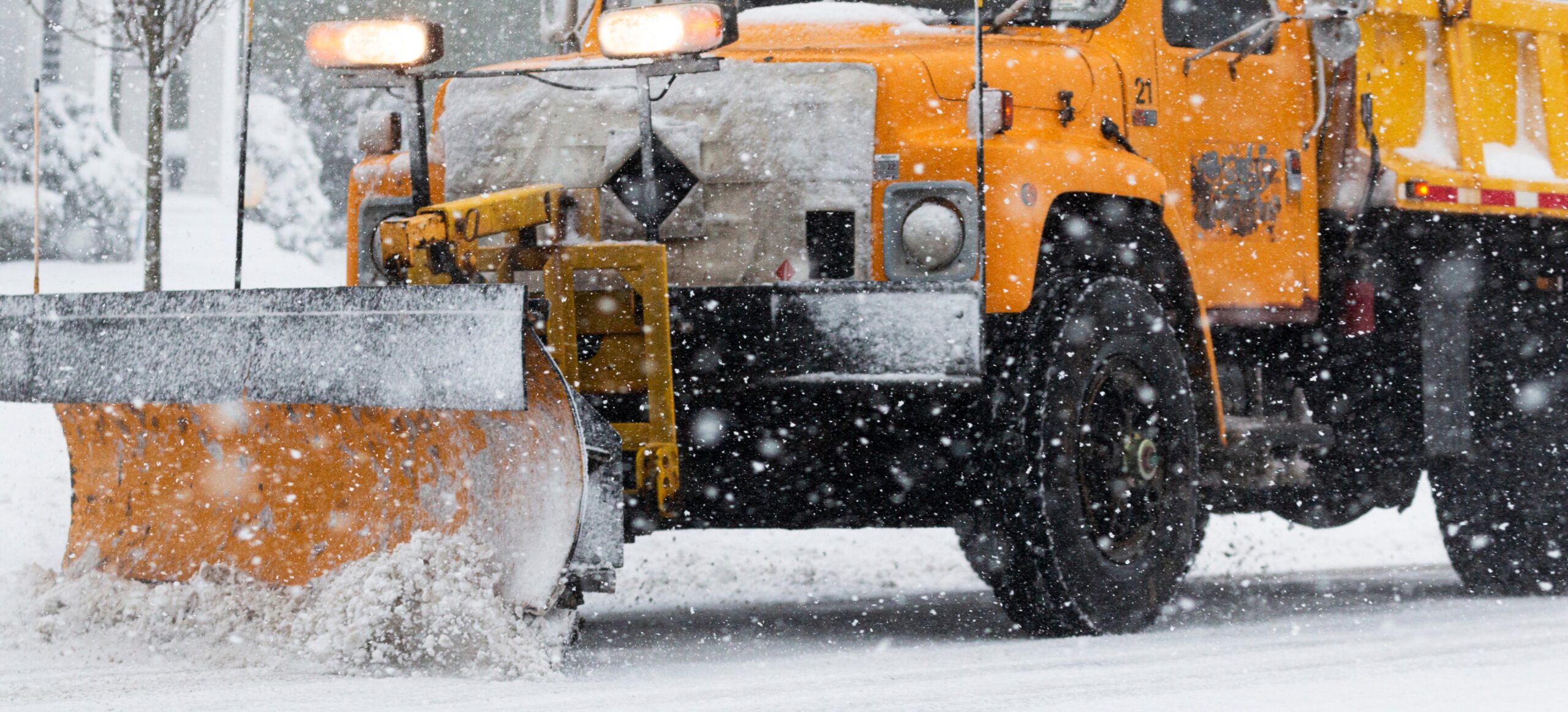A snow plow cutting edge is the heavy-duty strip mounted to the bottom of your plow blade, designed to make direct contact with snow, ice, and pavement with every pass. This essential component bears the brunt of constant wear, scraping compacted snow, ice, and debris while protecting the moldboard above from costly damage.
For municipal trucks, skid-steer plows, and loader-mounted equipment, keeping cutting edges in top condition is crucial. After multiple storm cycles, sometimes 12 to 20 events per winter in Midwest municipalities, steel and rubber edges can wear quickly from abrasive surfaces like asphalt, concrete, and gravel. Worn edges reduce scraping efficiency, increase fuel use, and risk damaging the blade itself. Poorly maintained edges also compromise safety, causing uneven plowing and diminished operator control in harsh winter conditions.
Polyurethane snow plow cutting edges offer a modern, high-performance alternative to traditional steel and rubber. Engineered for durability and resilience, these edges protect surfaces, extend equipment life, and reduce maintenance costs. Custom molded polyurethane cutting edges from Uniflex, Inc. are built to meet the demands of any snow removal operation, offering reliable performance season after season.
In this guide, we’ll show you how to recognize worn cutting edges and explain why switching to polyurethane can save time, reduce costs, and keep your snow removal equipment performing at its best.
👉Also Read: Steel vs. Rubber vs. Polyurethane: Which Snow Plow Blade Material is Best for You?
What a Snow Plow Cutting Edge Does
The cutting edge is a replaceable strip bolted to the bottom of a snow plow, typically spanning the full 6–10 ft width of the blade. This vital component serves as the frontline of your snow removal equipment, making direct contact with snow, ice, and pavement while protecting the plow’s moldboard and frame above.
Primary Functions
A cutting edge performs three essential roles during plowing operations:
| Function | Description |
|---|---|
| Scraping | Shears compacted snow and ice from pavements such as asphalt and concrete. |
| Channeling | Directs cleared material efficiently to the sides or rear of the plow. |
| Protection | Shields the moldboard and frame from direct abrasion and impact damage. |
Traditional carbon steel edges deliver aggressive scraping performance for packed snow, but they come with trade-offs. Steel edges generate significant noise, transmit harsh vibration to operators, and can damage pavement surfaces. While they provide a strong initial bite, steel edges wear quickly, losing up to 1/8-inch in thickness per season under heavy municipal use.
Advanced materials like polyurethane take a different approach. Flexible polyurethane edges absorb impact and conform to surface irregularities, minimizing gouging while distributing pressure evenly across the blade. Their elasticity prevents digging into asphalt while maintaining close contact for effective thin-ice removal.
Application Examples
Snow plow operations vary widely depending on the equipment and environment:
- DOT and municipal truck plows on highways require high durability for fast, high-volume clearing.
- Skid-steer plows in parking lots need precision for tight spaces and varied surface conditions.
- Loader plows in industrial yards and distribution centers handle heavy, contaminated snow mixed with debris.
In areas with decorative pavers, stamped concrete, or aging asphalt, common at retail centers and commercial properties, surface protection is just as important as scraping power. Polyurethane edges strike this balance, providing efficient snow clearing while minimizing damage to sensitive surfaces.
Signs Your Snow Plow Cutting Edge Needs Replacement
Regular visual and performance checks before and after each storm are essential for keeping snow removal operations efficient and safe. Operators should measure the remaining edge material and compare it to the original thickness to determine service life, whether using steel or polyurethane cutting edges.
When multiple warning signs appear, such as uneven wear combined with vibration, the edge should be replaced promptly. Waiting too long can lead to operational failures, equipment damage, and increased safety risks.
Visual Wear & Tear
The most obvious indicators of a worn cutting edge are visible during routine inspection:
Thickness and Profile Changes
- Edge worn down close to bolt heads, with less than 50% of original thickness remaining.
- Rounded leading edge instead of a crisp, defined profile.
- Visible thinning along the center of the blade where contact is most frequent.
Structural Damage
- Cracks, chips, or missing chunks, particularly near the ends, where the edge contacts curbs and manhole covers.
- Deep gouges or tear marks caused by rocks and debris.
- Holes around mounting hardware becoming elongated or deformed.
Uneven Wear Patterns
- One corner is significantly shorter than the other, often caused by incorrect plow angle, misadjusted skid shoes, or excessive down pressure.
- Cupping or tapering along the edge indicates operation over rough surfaces or at high speeds.
Performance Issues on Snow and Ice
Operational symptoms often appear before visual wear is severe:
- Multiple passes needed to clear areas that previously required only one.
- Streaks of packed snow remain even at the proper blade angle.
- Increased salt usage to compensate for incomplete clearing.
- Plow riding up over compacted snow instead of cutting through it.
Operators may also notice increased push-back resistance, requiring higher hydraulic pressure to maintain contact. Chatter, skipping, and uneven scraping signal that the cutting edge is no longer in full contact with the surface. Excessive vibration in the cab and steering wheel is another clear indicator that the edge is at the end of its service life.
Equipment Damage Risks
Continuing to operate with worn edges can cause cascading damage to the plow assembly:
| Component at Risk | Damage Type | Repair Cost Impact |
|---|---|---|
| Moldboard bottom | Ground away from pavement contact | Moderate to high |
| Trip edge mechanism | Worn or seized from impact stress | High |
| Mounting hardware pack | Elongated holes, sheared bolts | Moderate |
| Plow frame | Warping from uneven stress distribution | Very high |
Ignoring wear can bend the moldboard, twist the plow frame, and increase hydraulic component failure from repeated shock loads. Elongated or cracked bolt holes often precede sheared fasteners. Proactive edge replacement protects your equipment and prevents costly repairs.
Safety Concerns for Operators and the Public
Uneven scraping leaves slippery patches, ruts, and other hazards that increase the risk of vehicle skids, pedestrian trips, and liability for operators and property owners. Degraded edges also create strong vibration and noise, contributing to operator fatigue during long shifts. Studies indicate vibration levels from worn edges can reduce reaction times and vehicle control, critical for safe winter operations.
Maintaining consistent and predictable plow performance helps preserve safe travel speeds and clear sightlines at intersections and crosswalks. Integrating regular cutting-edge inspections and replacements into winter maintenance plans is essential for fleet managers, contractors, and property operators alike.
Why Polyurethane Cutting Edges Are the Better Option
Polyurethane is an engineered elastomer that combines the toughness of hard plastics with the flexibility of rubber, delivering exceptional abrasion resistance and impact absorption. This material has become the preferred choice for many municipal, commercial, and industrial users who need a better balance of lifecycle cost, surface protection, and operator comfort than traditional steel, polyethylene, or rubber alternatives.
Modern polyurethane formulations can be tailored by hardness (durometer), thickness, and profile to match specific plow models and operating conditions. Uniflex, Inc. specializes in custom molding polyurethane components, including cutting edges, based on OEM drawings or customer-provided samples—supporting everything from rapid prototyping to high-volume production runs.
Durability and Longevity
Polyurethane snow plow edges resist wear from abrasive surfaces like sanded roads far better than many alternative materials. The material maintains its structural integrity when exposed to de-icing salts that would corrode steel edges, and it performs reliably across temperature extremes from -40°F to 150°F.
Key durability characteristics include:
- Abrasion resistance: Handles sand, salt, and small aggregate without rapid material loss
- Impact absorption: Elastic memory allows the edge to absorb impacts from manhole covers, expansion joints, and packed snow piles without cracking
- Corrosion immunity: Zero rust or degradation from chemical exposure
- Temperature stability: Maintains flexibility and performance through sub-zero nights and daytime thaw cycles
Field data shows polyurethane edges often last 2–4 times longer than rubber and significantly outperform steel edges in sensitive-surface applications. Municipal fleets commonly report 3–5 seasons of service from polyurethane versus 1–2 seasons from steel in comparable operating conditions.
Cost-Effectiveness Over the Season
The extended lifespan of polyurethane edges translates directly to reduced operational costs:
| Cost Factor | Steel Edges | Polyurethane Edges |
|---|---|---|
| Replacements per season | 2–3 typical | 0–1 typical |
| Labor hours for change-outs | Higher cumulative | Significantly reduced |
| Pavement repair liability | Moderate to high | Minimal |
| Hardware wear | Accelerated | Reduced |
| Emergency service calls | More frequent | Less frequent |
Longer edge life reduces the number of change-outs per season, cutting labor and downtime during critical storm windows when every plow needs to be operational. Polyurethane is less likely to cause surface damage to expensive pavement, decorative concrete, and parking deck membranes—helping avoid costly repairs or tenant complaints.
The material also reduces wear on the plow’s base angle, and the mounting hardware pack includes stainless hex nuts, stainless washers, and stainless bolts that remain secure longer when not subjected to the harsh vibration of steel edges. Fewer replacements, fewer emergency service calls, and more predictable budgeting across a 3–5 year poly edge program deliver quantifiable ROI.
Performance and Operator Comfort
Polyurethane edges create a smoother, quieter pass than steel, reducing noise in residential areas and noise exposure for operators during extended shifts. The softer material produces none of the harsh “banging” associated with steel edges hitting expansion joints, raised utilities, and other hard surfaces.
Performance advantages include:
- Reduced vibration: 40–60% less vibration transmitted through the plow and vehicle
- Consistent contact: Flexes over minor surface irregularities while maintaining scraping effectiveness
- Surface versatility: Handles asphalt, concrete, and sealed surfaces without adjustment
- Operator fatigue reduction: Up to 30% less fatigue per shift according to operator reports
The material’s flexibility allows it to maintain good scraping performance while conforming to pavement variations, helping to clear snow evenly across surfaces with different characteristics. This translates to fewer passes required and more efficient operations.
Customization and Versatility
Polyurethane edges can be custom molded to exact length, thickness, bolt pattern, and profile for truck plows, box plows, containment plows, and loader buckets. This flexibility ensures optimal fit and performance regardless of equipment type.
Uniflex, Inc. offers:
- Durometer selection: From softer 85A for delicate surfaces to harder 90A for aggressive scraping
- Custom profiles: Matching exact OEM contours or designing new geometries
- Production flexibility: One-off prototypes through recurring production runs
- Special features: Custom colors, embedded wear indicators, and molded-in branding for fleet management
Whether you need edges for pricing thickness, width, or length specifications on a single specialty plow or standardized components for a municipal fleet, Uniflex, Inc. supports both one-off custom projects and established production schedules.
Polyurethane vs. Steel Cutting Edges
Steel edges remain common in snow removal operations, but they are no longer the default choice for every application. Understanding the strengths and limitations of steel and polyurethane helps operators select the right solution for their specific operating environment.
Steel Cutting Edges: Strengths and Limitations
Steel edges provide aggressive scraping performance, ideal for heavy, compacted snow and ice. On rough rural roads or industrial surfaces where minor scarring is acceptable, steel’s sharp initial bite can effectively break through packed material.
Steel Advantages:
- Lower upfront cost ($50–100 per foot, typical)
- Sharp initial cutting action for very hard ice
- Familiar to operators and maintenance crews
Steel Drawbacks:
- High noise levels and significant vibration transmitted to operators
- Potential to gouge asphalt and chip concrete surfaces
- Accelerated wear in high-salt or high-abrasion environments due to corrosion
- Requires replacement every 100–200 hours in heavy use
- Can visibly damage sensitive surfaces after just one season of intense use
Because steel is rigid, it cannot flex over surface irregularities, resulting in uneven contact and characteristic scratches on decorative pavers, parking deck membranes, and other sensitive surfaces.
Poly Snow Plow Cutting Edges in Real Applications
Polyurethane edges offer flexibility, durability, and surface protection, making them ideal across diverse snow removal environments. Real-world deployments highlight their advantages:
Municipal Applications:
- Downtown streetscapes protected from plow damage
- Brick crosswalks and decorative pavers preserved
- Transit platforms cleared without surface marring
- Midwest municipal fleets reporting up to 35% fewer replacements over three winters
Commercial Applications:
- Logistics hubs benefiting from quieter snow-clearing operations
- Hospitals and healthcare facilities maintaining low-noise operations during night shifts
- Retail centers protecting surface aesthetics for tenant satisfaction
- Distribution centers handling frequent use over extended winter periods
Industrial Applications:
- Manufacturing plants with mixed surface types
- Mining regions with gravel-heavy snow, demonstrating up to 2.5x lifespan extension over steel
- Airports, using polyurethane edges for continuous 24/7 runway clearing
Uniflex, Inc. works closely with OEMs and fleet operators to standardize polyurethane edge designs across mixed equipment fleets, ensuring consistent performance, simplified inventory management, and reduced total cost of ownership.
👉Also Read: Enhance Your Snow Removal: Top Polaris Plow Cutting Edge Features and Benefits
Maintenance Tips for Polyurethane Cutting Edges
Polyurethane cutting edges provide exceptional durability compared to steel or rubber alternatives, but proper inspection and care are essential to maximize service life. Many of the same warning signs that apply to steel edges are relevant for polyurethane, although poly edges often provide more advanced notice of wear when inspected regularly.
Routine Inspection and Torque Checks
Inspections should occur at predictable intervals throughout the season:
| Timing | Inspection Focus |
|---|---|
| Before each major storm | Visual check for cracks, chips, or other damage; verify bolt tightness |
| After extended plowing shifts | Look for deep cuts, tears near bolt holes, or any unusual deformation |
| Mid-season | Measure edge thickness at multiple points to monitor wear |
| End of season | Assess overall condition in preparation for the next year |
Operators should ensure all mounting hardware remains properly torqued and that holes are not elongating in either the polyurethane or the base angle. During installation, follow the manufacturer’s torque specifications to avoid over-compressing the polyurethane material.
Documenting edge conditions with measurements along the blade allows fleet managers to track wear, predict replacement timing, and plan maintenance schedules proactively.
Cleaning and Storage
Proper care between uses can significantly extend edge life:
- Post-storm cleaning: Rinse off salt, sand, and de-icing chemicals to protect both the polyurethane and adjacent metal components.
- UV protection: Store plows indoors or under cover whenever possible to reduce weathering during the off-season.
- Shape preservation: Avoid storing edges under heavy loads or with sharp bends, as persistent deformation can lead to uneven wear next season.
- Tracking: Label and monitor edges to track the number of seasons or approximate hours of use.
Maintenance records indicate that proper cleaning and storage routines can extend edge life by 20–30% compared to equipment that receives no between-storm care.
Knowing When a Poly Cutting Edge Is at End of Life
A polyurethane edge should be replaced once it wears down to a predetermined minimum height, typically 1–1.5 inches above the bolt heads, depending on design. Other replacement indicators include:
- Repeated tearing around fasteners despite proper torque
- Large missing sections affecting uniform surface contact
- Inability to maintain consistent contact with the plowing surface
- Wear below 60% of the original thickness at any point along the blade
While minor surface nicks are normal, deep cuts that alter the edge profile or expose internal reinforcement indicate the edge has reached the end of its service life. Proactively replacing borderline edges before a major storm helps avoid on-route failures and costly emergency downtime.
Choosing the Right Polyurethane Cutting Edge
Not all polyurethane snow plow blades are created equal. Formulation, hardness, and geometry must be matched to both the plow equipment and the operating environment to achieve optimal performance. Partnering with an engineering-focused manufacturer like Uniflex, Inc. ensures that polyurethane properties are tailored to your specific requirements.
Matching Edge Design to Equipment and Route
When specifying polyurethane edges, consider the following factors:
Equipment Type:
- Straight blade truck plows
- V-plows requiring segmented edges
- Box plows and containment plows
- Loader buckets with curved profiles
Route Characteristics:
- Average snowfall amounts and snow type (light powder vs. heavy wet snow)
- Surface composition (gravel, asphalt, concrete)
- Obstacles such as speed bumps, dock plates, and expansion joints
- Mixed-surface facilities combining asphalt lanes and concrete loading areas
Uniflex, Inc. can manufacture edges to match OEM bolt patterns for major truck plow brands, as well as custom blades built by fabricators. For facilities with mixed surfaces, polyurethane can be engineered to handle both without requiring edge changes between areas.
Low- and High-Volume Production Options
Uniflex, Inc. supports a full range of production needs:
- Prototype development: One-off custom projects for specialty plows or new designs
- Small quantities: Independent contractors evaluating performance before larger orders
- Medium volumes: Commercial snow removal companies standardizing across their fleets
- High-volume production: Municipal fleets and OEMs requiring thousands of units with consistent specifications
Municipalities and property management groups can work with Uniflex, Inc. to establish annual or seasonal release schedules, ensuring edges are available before winter begins. In-house engineering and rapid prototyping capabilities allow for quick design iterations and testing before committing to full production.
From single prototypes to truckload quantities, Uniflex, Inc. provides the flexibility and reliability B2B customers need to keep winter operations running smoothly.
👉Also Read: Purchase Your Polyurethane Plow Edge This Winter
Upgrade to Durable Polyurethane Snow Plow Cutting Edges Today
Protect your surfaces, reduce operator fatigue, and extend the life of your snow plow with custom molded polyurethane cutting edges from Uniflex, Inc. Designed for trucks, ATVs, UTVs, and tractors, our urethane blades are durable, reversible, and easy to drill for any bolt pattern.
Whether you’re tackling residential driveways, commercial lots, or municipal streets, Uniflex, Inc. blades provide superior abrasion resistance, vibration absorption, and surface protection, delivering quieter, more efficient plowing with fewer replacements and less downtime.
Request a free quote by calling 248-486-6000 or submit the contact form here to order your urethane snow plow blades. Price breaks are available for bulk orders of 10 pieces or more. Get the best value by buying direct from the manufacturer.
Frequently Asked Questions
Can I Retrofit a Polyurethane Cutting Edge onto an Existing Steel Plow?
At Uniflex, Inc., we make it simple to upgrade your plow with polyurethane cutting edges. In most cases, these edges can replace steel as long as the length, width, thickness, and bolt pattern match your current setup. We can custom-manufacture edges to your exact dimensions using OEM specifications or customer-provided samples. Installation is straightforward and comparable to a standard steel edge replacement, with most operators completing the retrofit without any modifications to the plow itself.
How Does Polyurethane Handle Contact with Gravel or Unpaved Surfaces?
Polyurethane performs well on compacted gravel at moderate speeds, although it is optimized for paved surfaces where its wear-resistant properties and surface protection provide the greatest benefit. In mixed-surface applications, such as facilities with both asphalt lots and gravel access roads, polyurethane handles transitions effectively. For operations with significant unpaved surface exposure, consulting with Uniflex, Inc. engineers can help determine the optimal durometer and profile for your specific duty cycle.
How Long Does It Take to Receive a Custom Polyurethane Cutting Edge from Uniflex, Inc.?
Lead times vary depending on design complexity and order quantity. For standard dimensions that match common plow models, production can often begin quickly with material already in stock. Custom designs requiring new molds take additional time for engineering review and tooling fabrication. Our rapid prototyping capabilities allow for faster turnaround on initial samples for testing. Most customers ordering production quantities for established specifications plan their orders ahead of winter to ensure availability when it is needed.



